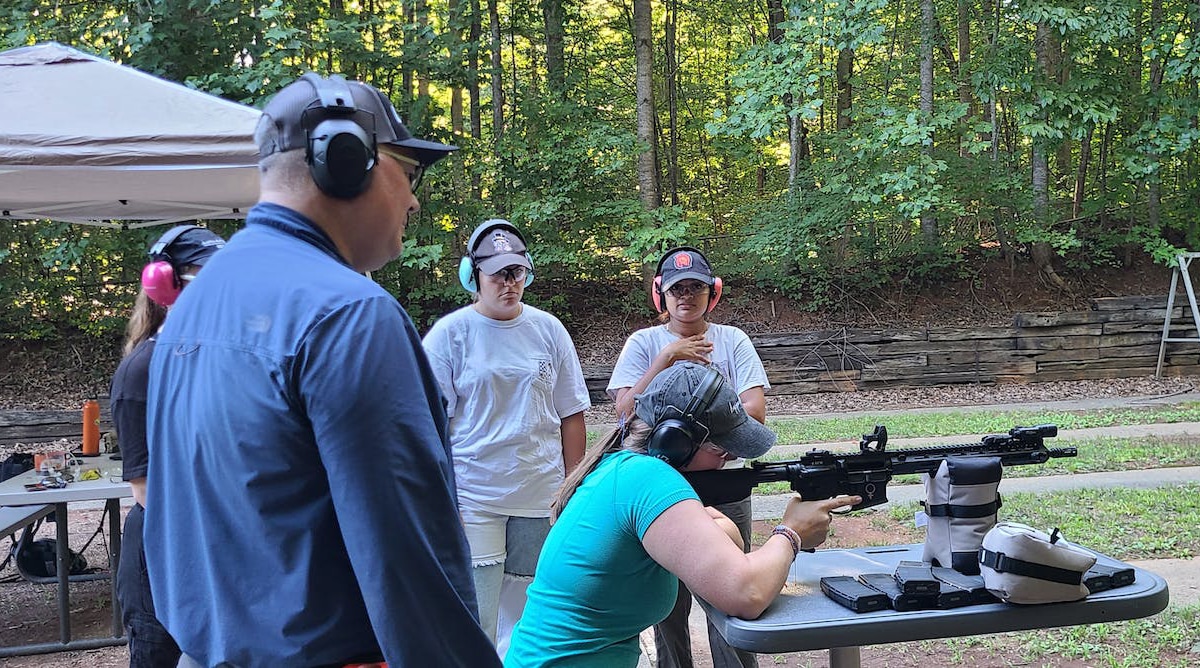

The College Kids Are Not All Right
by Natalie Wexler | Jun 2, 2024
College professors are reporting that their students are no longer capable of reading or writing the kinds of complex texts that used to be routine assignments. Although there are surely multiple reasons, it’s likely this has something to do with the way we’ve been trying to teach reading comprehension, beginning in elementary school.
A couple of recent articles describe the problem in chilling detail. One that appeared in Slate in February, written by a college professor named Adam Kotsko who has been teaching for over 15 years, described his personal experience. While he used to be able to assign around 30 pages of reading per class meeting, he wrote, in the past five years, “students are intimidated by anything over 10 pages and seem to walk away from readings of as little as 20 pages with no real understanding.” He’s had to spend much of class time “simply establishing what happened in a story or the basic steps of an argument—skills I used to be able to take for granted.”
Those outside academia, Kotsko writes, are skeptical. Is this really something new, they ask? Haven’t college professors always complained about the capabilities of their students? But when Kotsko speaks to fellow academics, he says, they get it. “I have literally never met a professor who did not share my experience,” he observes. They’ve had to ratchet down their expectations to meet the abilities of their students. Yes, there have always been students who skip the reading. “But,” Kotsko writes, “we are in new territory when even highly motivated honors students struggle to grasp the basic argument of a 20-page article.”
More recently, the issue was taken up by the Chronicle of Higher Education in a lengthy piece that includes interviews with professors and students at a range of institutions, including some highly selective ones. All the interviewees basically validated Kotsko’s perceptions, although they had various perspectives on their causes and consequences. That article is behind a paywall, but I’ll summarize what I see as its most salient points.
A professor at Stevens Institute of Technology says that she and her colleagues discuss the problem regularly, agreeing that they can’t assume students will do the readings. But if they simply go over in class what students should have read, it’s not clear what purpose is being served. While she has long believed in meeting her students where they are, she says that “if she meets them any further down, she’ll feel like a cruise director organizing games of shuffleboard.”
Generally, professors say students don’t do work outside of class and struggle to read and analyze lengthier, complex texts that use academic vocabulary. A media studies professor at Wellesley College—a highly selective institution—says he’s had to reduce the amount of reading and writing he assigns. A biology professor at Davidson College observes that students are no longer able to synthesize and summarize information the way they used to, even needing explicit instruction in how to take notes.
Is this really a problem?
You may be wondering—as Kotsko says many non-academics do—whether this really is a new phenomenon. As far as I know, there’s no quantitative data to support these professors’ perceptions, and other professors who have not been quoted may see things differently. I wish we had some large-scale studies, but to my mind there’s enough anecdotal evidence to warrant being concerned and trying to figure out what might be causing the problem.
Another threshold question might be whether this is a problem at all. So what if kids can’t read or write at length, some ask? Maybe this is just the dawn of a new age when students will get or produce information via videos or podcasts. A professor at the University of Notre Dame told the Chronicle of Higher Education that the real problem is that the textbooks and academic articles students are asked to read are boring. Maybe instead of assigning such tomes, professors “should consider presenting information through other forms of media.”
This recommendation echoes the rather startling statement put out in 2022 by the National Council of Teachers of English: “The time has come to de-center book reading and essay writing as the pinnacles of English language arts education,” it declared. Speaking and listening are also forms of literacy, the NCTE asserted, and they are “increasingly valued.”
I agree that speaking and listening have value, but this argument overlooks the fact that reading and writing are—in most cases—more intellectually challenging formats. That’s partly because written text uses more complex vocabulary and syntax than spoken language. You could argue that those features are simply barriers to understanding, so why not eliminate them? It’s true that complexity can obscure meaning. But it doesn’t have to, and ideally it shouldn’t.
The complexity of a text should stem from the complexity of the ideas it is trying to convey. If we limit students to simple texts—or to forms of oral language that are less complex—we’re preventing them from developing the ability to grapple with or originate complex or nuanced thoughts. And the answer to boring textbooks isn’t to have students watch a video instead. It’s to assign reading that is both engaging and challenging, and ensure students are equipped to read and analyze it.
Assuming, then, that this is a problem, and that it’s a new one, there’s unlikely to be a single cause. According to a recent article in the New Yorker, there’s been a general decline in people’s ability to pay attention, which is likely rooted in their ready access to social media. In addition to a global decline in test scores of 15-year-olds—with a third of them citing digital distraction as an issue—there’s been an uptick in the number of people seeking clinical help for attention problems, an acceleration in the pacing of films, and a decline in the average length of a pop song.
Schools can’t entirely insulate students from a culture that seems to be barreling toward decreased attention spans. But there are certainly things they can and should do to mitigate its effects—to introduce students to what it’s like to pay sustained attention to a topic or a written text, and to the rewards of doing so.
Smartphones and the Common Core
One simple step in that direction would be to ban smartphones from the classroom, or maybe even from the entire school day. There’s been a lot of debate about the effect of phones and social media on teenagers’ mental health, but—as education commentator Daisy Christodoulou has pointed out—everyone seems to agree that phones interfere with students’ ability to pay attention in class. Shouldn’t that be enough to place them off limits during class time?
Beyond “phones” and everything they now stand for (the least of which is making an old-fashioned phone call), what else might be going on in K-12 schools that explains what’s going on in colleges? Some commentators in the articles point to ineffective instruction in phonics, and others to the practice of “teaching to the test” by mimicking the format of brief passages followed by comprehension questions. Several attribute the latter phenomenon to the Common Core.
Given the timing, it does seem like the Common Core has something to do with it. While there’s some evidence that the issue has been around for a while, Kotsko dates the trend to the last five years. States started adopting the Common Core standards in 2010. So students who started college in 2019 and later are the first generation to have been exposed to Common Core-influenced instruction for most or all of their K-12 schooling.
The Common Core has long been a punching bag for people across the political spectrum, and I don’t want to pile on unnecessarily. It’s had some beneficial effects and others that are harmful—the latter having a lot to do with misinterpretations of what it called for. I’ve written about that before, here.
For now, I’ll just say that on the positive side, the standards appear to have sparked a new generation of elementary literacy curricula that focus on rich content rather than comprehension skills—like “making inferences”—that can’t actually be taught or assessed in the abstract, divorced from any particular content. Those curricula were developed by organizations that got the message that the only way to enable students to meet the more rigorous standards of the Common Core was by building their academic knowledge in a logical sequence, beginning in the early grades.
Unfortunately, the message that most schools (and curriculum publishers) got was quite different. They saw the Common Core as a directive to continue the focus on abstract comprehension skills and just add some new ones—like “connecting claims to evidence,” the supposed general skill of “reading nonfiction,” and “close reading.”
The Common Core was also supposed to do away with the standard practice of limiting kids to their individual reading levels—which could be well below their grade level—but evidence shows that instead it led to an increase in that practice at higher grade levels. And it seems that even after federal legislation was changed in an effort to reduce test pressure, schools continued to teach reading comprehension by providing students with the format they would see on a test: a paragraph or two excerpted from a longer text, followed by comprehension questions designed to foster and measure “skills.”
One problem is that, as others have noted, this approach turns reading into a joyless exercise. Another is that it puts the cart before the horse to such an extent that the horse disappears, leaving the cart stalled. Instead of immersing students in texts and bringing in skills to enable their understanding and analysis, it tries to use simple or disconnected passages as instruments for developing skills that can’t be developed in the absence of rich content. What you end up with is students who have few skills and little understanding of how to read and analyze a lengthy text, or even a novel.
Beyond the “knowledge gap”
When I started writing about the negative consequences of standard reading comprehension instruction, over 10 years ago, I saw them as being largely confined to students from less highly educated, low-income families. I wrote about a “gap” in academic knowledge between those students and their more advantaged peers, who were better able to acquire that kind of knowledge and vocabulary, and the benefits that come with them, outside school. I knew from experience that many high school students at high-poverty schools couldn’t read and understand “grade-level” text, and that few did any assigned reading for homework. If there was reading to be done, teachers would read it aloud or summarize it in class.
Gradually I’ve come to realize that these problems are not confined to high-poverty schools, but this is the first indication I’ve had that they can also be found at highly selective colleges and universities. Of course, it’s at least as much of a tragedy when students living in poverty are prevented from reaching their full potential as when affluent students are—and I’m convinced that at lower socioeconomic levels, a heartbreaking amount of potential is going to waste. But this new information suggests that the problem is both more widespread and deeper than just a “knowledge gap.” Clearly, many of those I had thought to be on the privileged side of the gap are also being deprived of important opportunities to fully develop. It’s not just that college students are “choosing TikTok over Jane Austen,” Kotsko writes. “They are being deprived of the ability to choose—for no real reason or benefit.”
What schools can do
There are things schools can do to combat this trend, although it gets harder as grade levels go up. It works best to start building knowledge and reading stamina in early elementary school—and that doesn’t necessarily mean a steady diet of “complex” nonfiction. If teachers read aloud entire novels, including classic children’s literature like Charlotte’s Web—instead of using a paragraph or two as a vehicle for comprehension questions—kids are likely to see reading as an enjoyable experience and to pick up the kind of complex vocabulary and syntax they’ll need to understand what they’ll be expected to read in years to come. Curricula should also build knowledge of history, geography, and science in a logical sequence, beginning in kindergarten.
Explicit writing instruction is also crucial—and can yield positive effects at any grade level, possibly including college. Writing isn’t just a skill. It’s also potentially a hugely powerful lever for developing reading comprehension, analytical abilities, and familiarity with complex syntax, especially if it starts at the sentence level and is embedded in the content of the curriculum. (A caveat: If the curriculum is primarily focused on comprehension skills and jumps quickly from topic to topic, writing instruction may not work because students won’t have enough information about any one topic to write coherently about it.)
Writing instruction can also address college professors’ complaints about students’ inability to summarize or synthesize information, or even to take notes. A method like The Writing Revolution can help develop all those things and more, but it may take more than simply directing students to, for example, write a summary by including all the “important” points. They may need explicit guidance in how to determine what is important.
If the best and the brightest college students are struggling to absorb or produce complex, lengthy text—and thereby also struggling to engage in nuanced, rigorous thinking—that’s a problem that will likely extend well beyond the confines of their leafy campuses. This is not just about kids being baffled by their biology textbooks or sentences in 19th-century novels. It’s about whether they, along with their peers at less selective institutions, will be cognitively equipped to lead and participate in a democratic society. Alarm bells should be ringing—and action should be taken.





0 Comments